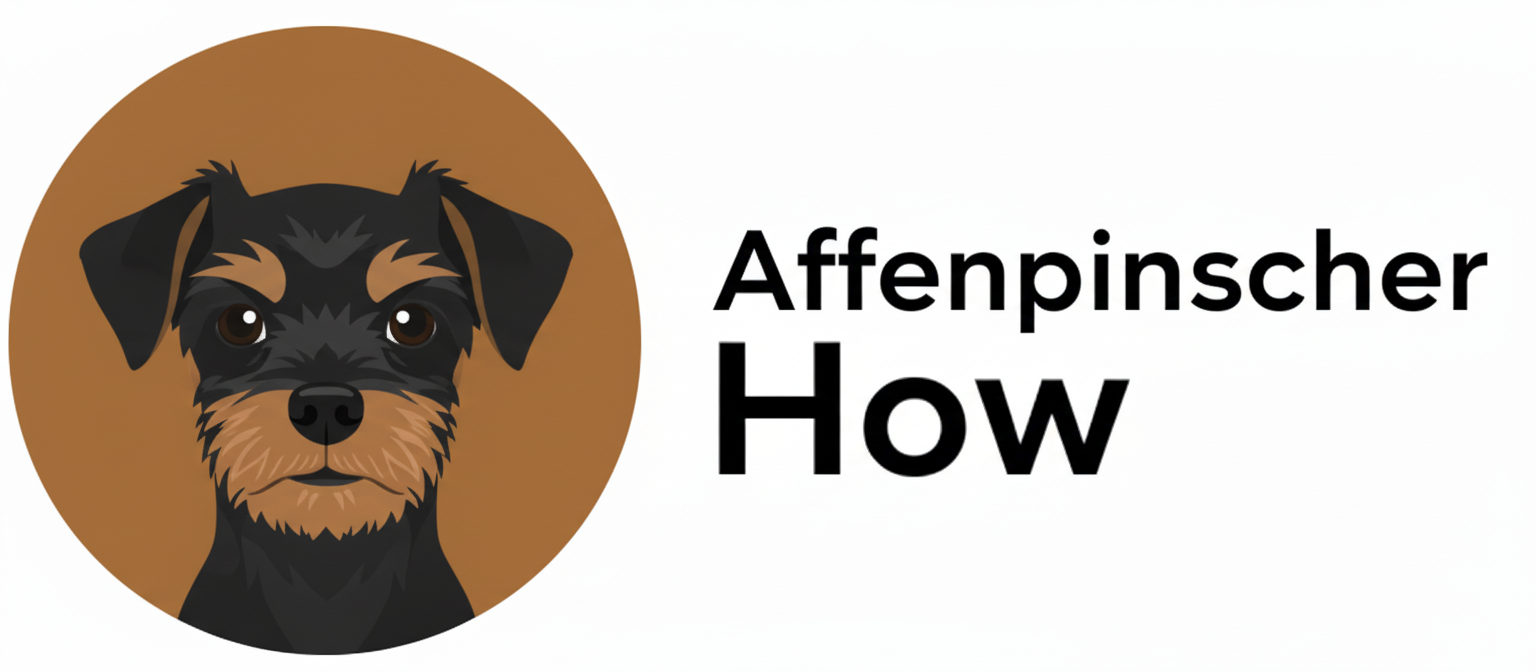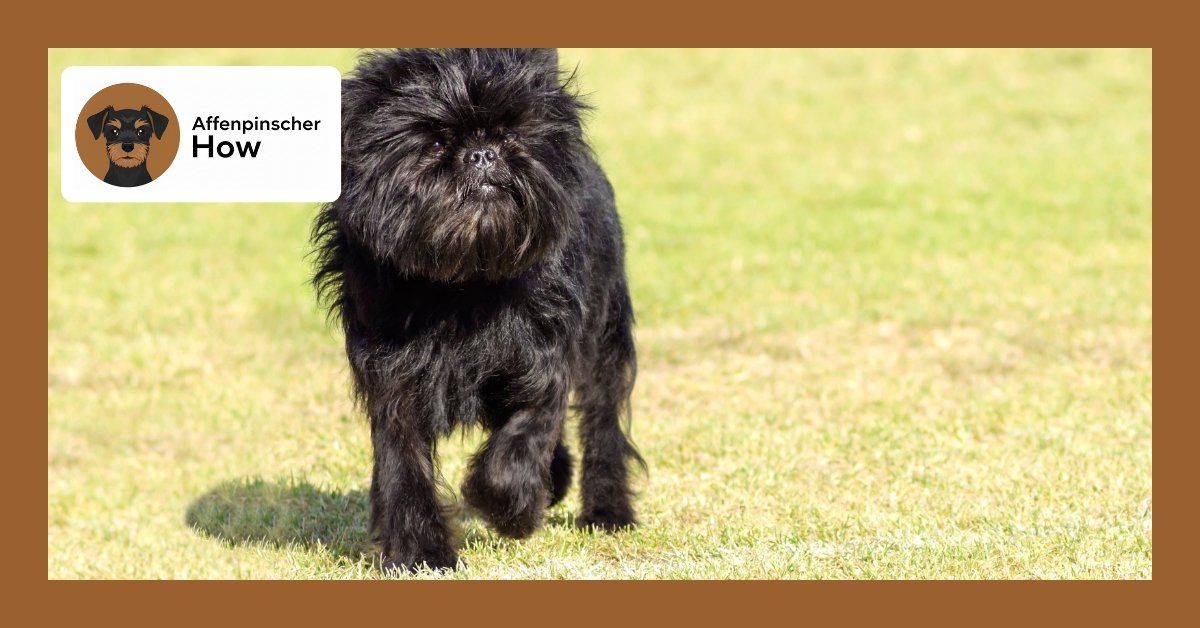Your Affenpinscher’s ribs are showing, and you’re wondering if this spunky little dog is dangerously underweight or just naturally lean. Unlike obesity concerns that dominate pet health discussions, an underweight Affenpinscher faces unique health risks that can quickly escalate into life-threatening complications.
An underweight Affenpinscher typically shows visible ribs, prominent hip bones, muscle wasting, and lethargy, often caused by inadequate nutrition, underlying health conditions, or breed-specific respiratory issues that interfere with eating and exercise.
The stakes are particularly high for this breed. Affenpinschers are genetically predisposed to respiratory and joint disorders that both contribute to and are worsened by inadequate weight. Understanding why your Affenpinscher is too skinny requires recognizing the complex relationship between their unique anatomy and weight management challenges.
7 Critical Signs Your Affenpinscher is Dangerously Underweight
Determining whether your Affenpinscher is too skinny goes beyond visual assessment. These seven warning signs indicate your dog needs immediate attention.
1. Visible Bone Structure
You should easily feel your dog’s ribs when running your hands along their sides, but visible ribs indicate insufficient body fat. Similarly, prominent hip bones that protrude noticeably and visible bones at the tail base signal dangerous weight loss.
2. Muscle Wasting and Weakness
Underweight Affenpinschers display noticeably smaller, less defined muscles as their bodies break down muscle tissue for essential nutrients. This manifests as decreased strength, mobility issues, and reluctance to jump or climb stairs.
3. Poor Coat and Skin Condition
Malnutrition produces dull, brittle fur and dry, flaky skin due to insufficient essential fatty acids. A healthy Affenpinscher should have a dense, wiry coat with natural shine. Proper dental care and overall health maintenance can help identify nutritional deficiencies early.
4. Energy Depletion and Lethargy
Dogs lacking adequate nutrition show decreased stamina for normal activities. Your typically energetic Affenpinscher may display disinterest in play, exercise, or their usual spunky behavior. This reduced energy often impacts their exercise requirements and activity levels.
5. Appetite Paradoxes
Underweight dogs exhibit contradictory eating patterns. Some display excessive appetite as their bodies desperately seek nutrients, consuming increased food without weight gain. Others lose food interest entirely due to underlying health issues.
6. Gaunt Facial Appearance
A hollowed-out look around the face and temples creates a sunken appearance that dramatically alters your dog’s normal expression. This indicates significant fat and muscle loss.
7. Increased Illness Susceptibility
Malnutrition weakens immune function, making underweight Affenpinschers more vulnerable to infections, illnesses, and slower recovery times from minor health issues.
Why Affenpinschers Face Unique Weight Challenges
This breed’s distinctive anatomy creates specific vulnerabilities that directly impact weight management and overall health.
Brachycephalic Airway Syndrome
Affenpinschers’ shortened muzzles restrict airflow, causing breathing difficulties that manifest as noisy breathing, excessive panting, and exercise intolerance. These respiratory challenges make eating and maintaining weight particularly difficult, especially during hot weather or stress.
Patellar Luxation Complications
This common genetic condition involves kneecap dislocation, causing intermittent limping and reluctance to exercise. Reduced activity levels directly impact appetite and muscle maintenance, creating a cycle where joint pain prevents weight-building activities.
Hip Dysplasia Vulnerability
While more common in larger breeds, Affenpinschers can develop malformed hip joints that cause movement difficulties and exercise avoidance. Pain and mobility limitations interfere with normal eating behaviors and muscle development.
How to Assess Your Affenpinscher’s Body Condition at Home
Regular body condition assessments help distinguish normal breed leanness from concerning underweight conditions. Understanding your dog’s typical size and weight ranges provides important context for these evaluations.
- Rib Check: Run your hands along your dog’s sides. You should feel ribs easily without pressing but not see them prominently.
- Waist Evaluation: Look from above. Your Affenpinscher should have a visible waist tuck behind the ribs.
- Profile Assessment: View from the side. The abdomen should tuck up toward the hind legs, not hang down or appear sunken.
- Hip Bone Examination: Hip bones should not protrude visibly or feel sharp when touched.
- Energy Level Monitoring: Track daily activity levels, play interest, and exercise tolerance.
Common Causes Behind Why Your Affenpinscher is Too Skinny
Understanding root causes helps determine appropriate interventions and prevent recurrence.
| Cause Category | Specific Issues | Impact on Weight |
|---|---|---|
| Medical Conditions | Dental disease, parasites, kidney disease | Reduces appetite and nutrient absorption |
| Respiratory Problems | Brachycephalic syndrome complications | Makes eating and exercise difficult |
| Joint Disorders | Patellar luxation, hip dysplasia | Decreases activity and muscle building |
| Nutritional Issues | Poor quality food, inadequate portions | Prevents proper weight gain and maintenance |
| Stress Factors | Environmental changes, anxiety | Suppresses appetite and disrupts eating |
Immediate Steps When Your Affenpinscher is Too Skinny
Taking prompt action prevents minor weight concerns from becoming life-threatening complications.
Veterinary Evaluation
Schedule an immediate appointment for professional assessment. Your veterinarian will perform blood work, check for parasites, and evaluate breed-specific conditions that may contribute to weight loss.
Dietary Adjustments
Increase meal frequency to three or four smaller portions daily rather than one or two large meals. This approach accommodates breathing difficulties and improves nutrient absorption.
Environmental Modifications
Ensure comfortable eating conditions by providing quiet, stress-free meal areas and maintaining appropriate temperatures to prevent respiratory distress during feeding.
Prevention Strategies for Long-term Weight Management
Successful weight management requires addressing breed-specific vulnerabilities while maintaining overall health.
- Regular monitoring: Weekly weight checks and monthly body condition assessments
- Respiratory support: Avoid overheating and provide cool environments during meals
- Joint protection: Implement low-impact exercise routines that build muscle without stressing joints
- Quality nutrition: Feed high-calorie, easily digestible foods appropriate for small breeds
- Stress reduction: Maintain consistent routines and calm feeding environments
Remember that weight management for Affenpinschers requires balancing multiple health considerations. Why your Affenpinscher is too skinny often involves complex interactions between genetics, anatomy, and environmental factors that demand professional veterinary guidance and ongoing monitoring.
Frequently Asked Questions
How quickly should an underweight Affenpinscher gain weight?
Healthy weight gain occurs gradually at 1-2% of body weight per week. Rapid weight gain can stress the respiratory and cardiovascular systems. Most Affenpinschers reach target weight within 8-12 weeks under veterinary supervision.
Can breathing problems cause my Affenpinscher to be too skinny?
Yes, brachycephalic airway syndrome makes eating difficult due to breathing restrictions. Dogs may eat less to avoid respiratory distress, leading to weight loss. Managing airway issues often improves appetite and weight gain.
What’s the ideal weight range for adult Affenpinschers?
Adult Affenpinschers typically weigh 7-10 pounds, though individual variations exist. Body condition scoring is more important than absolute weight numbers. Focus on feeling ribs easily without seeing them prominently.
Should I increase exercise if my Affenpinscher is underweight?
Moderate, low-impact exercise helps build muscle mass, but avoid overexertion in underweight dogs. Short, frequent walks and gentle play sessions work better than intensive exercise until weight normalizes.
How do joint problems affect weight in Affenpinschers?
Patellar luxation and hip dysplasia cause pain and mobility limitations, reducing activity levels and muscle development. Pain management and appropriate exercise modifications help maintain healthy weight while protecting joints.
When is an underweight Affenpinscher considered a medical emergency?
Seek immediate veterinary care if your dog shows visible bone prominence, lethargy, breathing difficulties, loss of appetite lasting more than 24 hours, or rapid weight loss exceeding 10% of body weight.
Can stress make my Affenpinscher too skinny?
Environmental stress, anxiety, and routine changes significantly impact appetite in sensitive breeds like Affenpinschers. Identifying and reducing stress sources often improves eating behaviors and weight gain. Consistent feeding schedules and calm environments support healthy weight maintenance.

